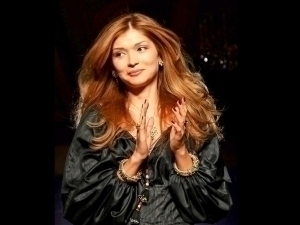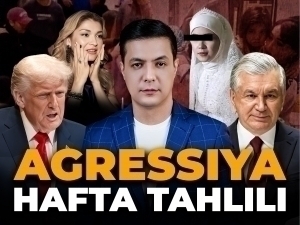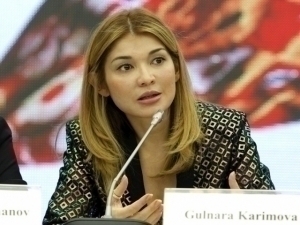Is Gulnara Karimova's release from prison imminent?
Review
−
08 January 2025 51745 14 minutes
Gulnara Karimova—a diplomat, professor, poet, designer, singer, entrepreneur, media magnate, and the daughter of Uzbekistan’s first president, Islam Karimov—has reportedly been released from prison after serving 10 years of her sentence.
However, this information has yet to be officially confirmed by Uzbek authorities. Media outlets, including QALAMPIR.UZ, have cited independent sources within law enforcement agencies to report her release.
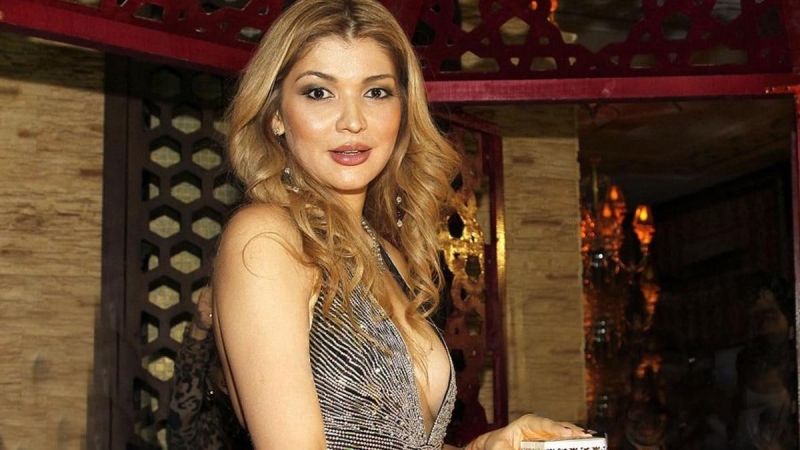
Since her sentencing in 2013, Karimova had been held at Women’s Specialized Colony No. 21 in the Zangiota district of the Tashkent region. According to information obtained by QALAMPIR.UZ, she has now been transferred to Penal Colony No. 42, also in the Zangiota district. This transfer raises questions about the reasons behind her move to a penal colony, which typically allows inmates more freedom of movement compared to traditional prisons.
Who is transferred to a penal colony?
"In order for a convict to be transferred to a penal colony, certain conditions must be met, in accordance with Article 113 of the current Criminal Code (Procedure for serving a sentence in penal colonies). First of all, the convict must have entered the path of recovery. In addition, for a serious crime, as well as for an intentional crime, if he was previously sentenced to imprisonment for an intentional crime, he must have served at least one third of the term of the sentence imposed by the court. For a particularly serious crime, early conditional release from the sentence or replacement of the sentence with a lighter one was applied, and for a new intentional crime committed during the unserved part of the sentence, the convict must have served at least half of the term of the sentence imposed by the court," says lawyer Abdumalik Abdullayev.
If we look at the charges against her, Gulnara Karimova was sentenced to 10 years in prison by the Tashkent Regional Criminal Court on December 18, 2017.
Based on information provided by the Prosecutor General's Office in 2017, it was revealed that on October 24, 2013, a criminal case was initiated against Karimova on charges of tax evasion in the activities of several LLCs. During the investigation, it was found that Gulnara Karimova directly assisted the criminal activities of organized groups led by Sodiqov between 2001-2012 and by Madumarov from January to October 2013.
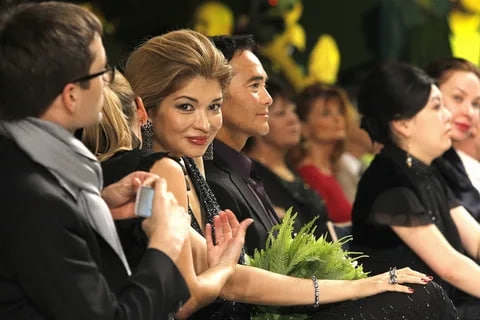
At that time, the Prosecutor's Office charged Gulnara Karimova under Articles 165 (Extortion), 167 (Robbery by embezzlement or misappropriation), 179 (Fake entrepreneurship), 184 (Tax evasion), and 227 (Seizing, destroying, damaging, or concealing documents, stamps, seals, forms, and license plates) of the Criminal Code of Uzbekistan. In December 2017, she was sentenced to 10 years in prison. However, the sentence was later reduced to 5 years from a humanitarian perspective, considering her commitment to returning funds obtained through criminal means and compensating the state for damages. The sentence was replaced with a restriction of liberty.
The place of serving this sentence was determined, at her own choice, to be her daughter Imon Karimova's residence. Restrictions were imposed, including prohibitions on leaving the residence, using communication devices, and accessing the Internet, alongside the obligation to compensate for damages.
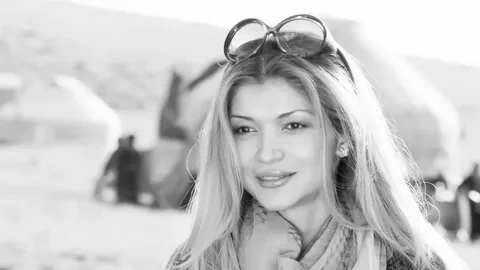
Later, due to Karimova’s intentional violation of the terms and conditions of her sentence, the unserved portion of her sentence was replaced with a deprivation of liberty. This decision, made in accordance with the criminal-executive legislation, followed a submission by the Probation Service under the Main Department of Execution of Sentences of the Ministry of Internal Affairs. Karimova was subsequently placed in Penal Colony No. 21, located in the Zangiota district.
In 2020, the Supreme Court of Uzbekistan stated that the Tashkent City Criminal Court had considered a criminal case against Gulnara Karimova and members of her criminal organization. The court found Karimova guilty of organizing a criminal organization, extortion, embezzlement, laundering proceeds from criminal activity, and other crimes.
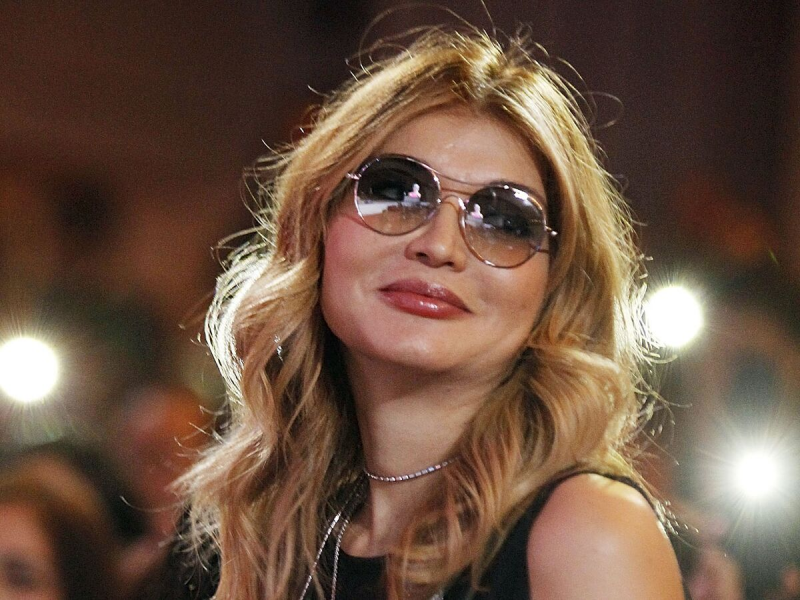
The court sentenced Gulnara Karimova to 13 years and 4 months in prison. In accordance with the norms of criminal law, and considering she was sentenced for multiple crimes and a set of sentences, the term of her imprisonment was determined to be calculated starting from August 21, 2015.
If we analyze the timeline, Karimova will have served 9 years and 4 months of her sentence from August 2015 to December 2024. Subtracting this period from her total sentence of 13 years and 4 months leaves an unserved term of 4 years. The question now arises whether Karimova will serve the remaining 4 years in a correctional colony or if she may be eligible for release.
Lawyer Abdumalik Abdullayev provides insight: "First, Gulnara Karimova was found guilty of committing a very serious crime by a court verdict. We have not seen any official information suggesting the court’s decision has been altered or annulled. Given that she has already served more than half of her 13-year and 4-month sentence, she has fulfilled the requirement for potential transfer to a correctional colony. However, such a transfer depends on confirmation of her rehabilitation by the colony where she is currently serving her sentence."
Gulnara Karimova is reportedly being transferred to an address colony. These colonies, along with strict and general regime colonies (prisons), operate under the supervision of the Department of Punishment under the Ministry of Internal Affairs.
Address colonies have a lighter regime compared to penal colonies. For instance, the frequency and duration of long- and short-term meetings, as well as telephone conversations, are more flexible in address colonies. In prisons, such meetings are typically allowed once every one and a half, two, or three months, depending on the regime. The rules governing telephone conversations and parcel deliveries are also more relaxed in address colonies.
Uzbekistan has a total of 25 address colonies, providing a less restrictive environment for eligible convicts. This lighter regime includes clearer guidelines on communication and visitation rights, reflecting a more lenient approach to rehabilitation compared to stricter penal institutions.
Article 114 of the Criminal Executive Code outlines the conditions for convicts in correctional colonies:
- Convicts are kept without guards but under supervision.
- They have the right to move freely within the colony from dawn to dusk.
- They may move outside the colony without supervision with the administration's permission if required for work or education.
- They are dressed in civilian clothes.
- They are allowed to keep money and valuables and use money without restrictions.
- Unlimited telephone conversations and the ability to receive and send parcels are permitted.
- Convicts have the right to unlimited visits.
If a convict violates the rules of the correctional colony, Article 105 of the Criminal Executive Code provides for the following disciplinary measures:
- Warning;
- Reprimand;
- Cancellation of facilitated conditions of detention;
- Placement in a disciplinary unit;
- Transfer of convicts who seriously violate the detention regime from a penal colony to a general regime colony;
- Transfer of convicts who seriously violate the detention regime from a penal colony to a general or strict regime colony, or from a strict regime colony to a special regime colony, or from a colony to a prison.
There has been considerable discussion about changes in the detention regime at penal colony No. 21 after Gulnara Karimova’s arrival.
In July 2019, Karimova’s lawyer, Gregoire Manja, visited Tashkent and met with his client. He raised concerns about her condition, describing her as being in poor health.
“I am returning from Zangiota. My client is in a bad state. High blood pressure. Her leg is completely bandaged. No medical treatment. She lost consciousness several times. My main question to the government: Zangiota, why and until when?” Gregoire Manja wrote on Twitter.
The lawyer called for an end to what he described as his client’s arbitrary detention. Previously, Manja had reported that Karimova was not receiving medical care and was subjected to psychological pressure.
However, the Prosecutor General’s Office of the Republic of Uzbekistan denied these claims, stating that Karimova’s condition was satisfactory. At the time, the Ombudsman and the Ministry of Justice conducted an investigation into the situation.
In July 2019, the Ministry of Justice issued a statement addressing the reports:
“Recently, various reports have been circulating on Internet resources and social networks about the conditions in the penitentiary of the convict G.I. Karimova, who is currently serving a sentence in accordance with the court’s verdict. The Ministry of Justice is conducting a study in the general regime women’s colony No. 21 in the Zangiota district of the Tashkent region, where the convict is being held,” the statement read.
The Ombudsman of the Oliy Majlis of the Republic of Uzbekistan also reported meeting with Karimova. During this meeting, Karimova expressed gratitude to the organization’s medical staff for their attention and timely medical care.
During the studies, it was noted that leading specialists in cardiology, neurology, gastroenterology, endocrinology, and gynecology were involved in Gulnara Karimova's medical examinations. Separate examinations were also conducted at the Central Hospital of the Ministry of Internal Affairs. According to the Ombudsman’s report, Karimova is systematically taking necessary medications as prescribed by doctors. “Today, her health is generally satisfactory, and a healthy diet has been established,” the statement read.
Concerns regarding Karimova’s health and restricted visitation rights were raised not only by her lawyer but also by her daughter, Imon Karimova, and her mother, Tatyana Karimova, the wife of Uzbekistan’s first president, Islam Karimov.
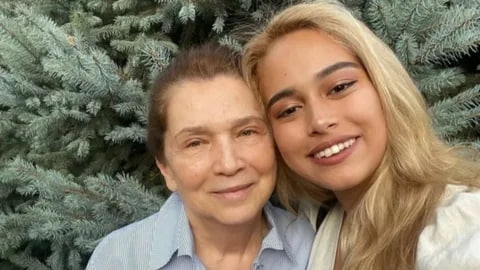
In April 2021, Imon Karimova publicly stated that she was unable to meet with her mother, who was serving her sentence in penal colony No. 21. She had officially applied for visitation rights, but her request was denied. According to Imon, the head of the penal colony, Gulrukh Rasulova, informed her via phone call that a long-term meeting would not be permitted.
“Gulrukh Rasulova said that there are no conditions for a long-term meeting between me and my mother in the Zangiota colony. The ‘leadership’ deemed it inappropriate to allow such a meeting. While I pointed out that similar meetings had been allowed previously, no explanation was provided for this decision,” Imon Karimova stated.
Following these posts by Imon Karimova, the Human Rights Ombudsman of the Oliy Majlis, Feruza Eshmatova, responded.
“There are over 200 institutions in the republic. We conduct monitoring visits to all facilities, including women’s colonies, according to our plan. We have visited the colony where Gulnara Karimova is held several times and conducted monitoring. Imon Karimova may not have been able to see her mother at that time due to quarantine restrictions. Now that quarantine measures have been eased, meetings are taking place,” Eshmatova explained.
By June 2023, Tatyana Karimova, the wife of Uzbekistan's first president, Islam Karimov, publicly shared for the first time that she had been denied the opportunity to visit her eldest daughter, Gulnara Karimova, who is currently imprisoned. She made this revelation on her Instagram page.
Tatyana Karimova began her post by congratulating her granddaughter, Iman, on her 25th birthday, which fell on June 17. However, she expressed her sorrow, writing, "Unfortunately, the joy of this beautiful day is incomplete. I was not allowed to see my daughter Gulnara in penal colony No. 21…”
From 2004 until her incarceration, Gulnara Karimova was a prominent figure, both in Uzbekistan and internationally. She was involved in various sectors, often at the helm of major projects. Whether in charity work, youth policy, or the media, few areas were untouched by Gulnara's influence.
Gulnara's relationship with her family
Gulnara Karimova's relationship with her father, Islam Karimov, the first president of Uzbekistan, was notably strained. There are no recent photographs of them together, and a criminal case was initiated against her during her father's presidency. A few years ago, a video surfaced in which Gulnara appealed for permission to visit her father.
In January 2020, a photo album published to mark Islam Karimov’s 82nd birthday notably excluded any images of him with his daughters.
Gulnara’s eldest child, Islam Karimov Jr., shared insights into the family dynamics during a 2017 BBC interview, revealing his grandfather's concerns about his mother’s public prominence.
“My grandfather always told my mother, ‘You should never surpass me.’ He feared that Gulnara would overshadow his legacy and steal the people's affection for him. My mother never pursued that and always spoke highly of him,” he explained.
Islam Karimov Jr. further revealed that his grandfather was deeply upset whenever Gulnara appeared in the media, saying, “The problem was that my grandfather would often see my mother on TV. He’d become so angry that we had to hide certain public events from him. My grandfather didn’t want her to appear in the Uzbek press, on television, or at official ceremonies. This made it extremely difficult for us to formalize some of the projects associated with the 'Mehr Nuri' and 'Yangi Avlod' foundations. In the early years, my mother denied any affiliation, even though her name was on the board of trustees. She could not admit that these initiatives were her idea because my grandfather would have viewed it as an attempt to usurp his power.”
Gulnara Karimova's relationship with her father, as well as with her sister Lola Karimova, has been far from enviable.
In a 2013 interview with an international media outlet, Lola Tilliyayeva revealed that she had not spoken to her sister, Gulnara, for over 12 years. The rift between the two reportedly began in 2001. "It’s hard to describe a relationship that doesn’t exist. My sister and I haven’t communicated for more than 12 years. We’ve never hidden this, and many people know about it. We’ve had no contact for years and no familial or friendly ties. Before you ask, I want to clarify that we don’t see each other at family events," Lola Karimova explained in her interview.
Later, in 2016, Gulnara Karimova’s son, Islam Karimov Jr., gave an interview where he attributed the conflict between his mother and aunt to their grandfather, the late president Islam Karimov.
“My mother and aunt had a normal relationship when they were young. The problem arose because of my grandfather, who I hold more responsible for the rift,” said Islam Karimov Jr. “My mother excelled academically, graduated with a gold medal, and pursued sports, earning a black belt. She was building her own career. But whatever she did, my aunt tried to mirror. The reason? My grandfather repeatedly told my aunt, ‘Why can’t you be like your sister? Why can’t you study well? Why can’t you be like ‘her’?’”
Islam Karimov Jr. further reflected, “I think my grandfather’s treatment of them was wrong. It’s his fault. His comments left a lasting impact. My aunt developed a complex because she constantly heard that she wasn’t good enough. This competition continued throughout their lives. Even today, my aunt tries to prove herself. This rivalry, I believe, led to the hostility between them, which later manifested in physical conflicts. Initially, it was emotional, but now it has affected our families. This hostility has caused irreparable damage.”
Lola Karimova now resides in Los Angeles with her husband, Temur Tillyayev, and their three children. She last attended memorial services for her father, Islam Karimov, in 2017. On August 31, 2023, she appeared with her niece, Iman Karimova, at a ceremony at the White House, though Iman Karimova later denied that her relationship with her aunt had been reconciled.
It had remained unclear whether the children of the estranged sisters would meet again, until January 2022, when cousins Iman Karimova and Maryam Tillyayeva reunited after eight years. The spontaneous encounter was shared on their social media pages, revealing the excitement of an unplanned reunion. A few months later, in September 2023, Tatyana Karimova, the wife of the first president of Uzbekistan, traveled to London with her grandchildren.
Accompanying her on the trip were Gulnara Karimova’s daughter, Iman Karimova, her son, Islam Karimov, and Lola Karimova’s daughter, Maryam Tillyayeva, as well as the young man expected to marry Iman Karimova.
In general, details about Gulnara Karimova’s life, especially regarding her relationship with her father, remain scarce. This is further underscored by the fact that the news of her transfer to a penal colony has yet to be officially confirmed.
Live
All

